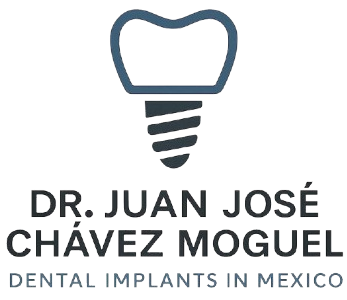Aftercare Guide
Aftercare Guide
Once your surgery is complete, it is essential to follow certain precautions to support a successful recovery and protect the treated area. Below are some key measures:
Avoid touching the implant site.
During the first two weeks after placement, avoid touching or putting direct pressure on the surgical area, even when brushing your teeth
Maintain good oral hygiene
Continue your oral hygiene routine, but be extra gentle around the surgical site. Special mouth rinses may be recommended by your surgeon if necessary.
Adjust your diet.
In the first few days, stick to soft, cold, or lukewarm foods, and avoid chewing on the side where the implant was placed. This will help prevent interference with the integration process, which typically takes 10 to 12 weeks.
Avoid harmful habits.
Do not smoke or consume alcoholic beverages during the healing process, as these can negatively affect the implant’s proper osseointegration
Following these recommendations will significantly contribute to a smooth and complication-free recovery. If you experience persistent discomfort or signs of infection, please contact our team immediately for proper care.
Post-Surgical Instructions: Diet, Hygiene, and Healing
Recommended Diet
If you received general anesthesia or IV sedation, begin with cold or room-temperature liquids. While your mouth is still numb, avoid hot foods or beverages, as they may cause burns without you noticing.
During the first few hours, you may consume:
- Applesauce
- Jell-O
- Pudding
- Plain yogurt
Once normal sensation returns, you may introduce soft solid foods, chewing on the side opposite the surgical area.
Avoid carbonated beverages, hot liquids, and the use of straws for the first 48 hours.
Recommended liquids:
- Water
- Natural juices
- Crushed ice or ice chips
- Ice pops
Oral Hygiene
Good oral hygiene is essential to prevent infection and support healing:
- Begin your oral care routine the day after surgery.
- Brush carefully with a soft-bristled toothbrush after each meal and before bed.
- If light bleeding occurs after brushing, gently bite on clean gauze as previously instructed.
- Do not rinse your mouth on the day of surgery.
Rest and Physical Activity
- Rest during the first 48 hours.
- After this period, resume activities gradually, depending on how you feel.
Healing Process
- Bad breath is common during the early days and will improve as healing progresses.
- White or firm tissue may appear in the treated area between the second and third day—this is a normal sign of healing.
- In some cases, the metal healing cap of the implant may become visible through the gum—this is not a cause for concern.
Use of Antibiotics
If an antibiotic was prescribed:
- Follow the dosage and schedule as directed.
- Do not stop taking it until the full course is completed.
- If you experience a rash or any other unusual reaction, contact us immediately.
Following these instructions will help ensure a smoother recovery. If you experience any unexpected symptoms or discomfort, do not hesitate to contact our office.
Bleeding
Some minor bleeding is expected after implant surgery and may continue for several hours. To control bleeding:
- Fold two pieces of damp gauze over the surgical area.
- Gently bite down with constant pressure for 30–60 minutes.
- Keep your head elevated and rest quietly.
- If bleeding continues, repeat with fresh gauze for another 30 minutes.
Check the surgical site directly to evaluate bleeding. It is normal to see pink or blood-tinged saliva for 2–3 days post-surgery. Sutures typically dissolve within 2–3 days and should not be disturbed.
Swelling
Swelling is a normal part of the healing process. It may not appear until 24 hours after surgery and will peak around 48–72 hours.
- Apply ice packs to the outside of your face (20 minutes on, 20 minutes off) while awake during the first 24 hours.
- After 48 hours, switch to warm, moist compresses on the cheeks to help reduce swelling.
Swelling should begin to decrease after the third day but can last up to 7–10 days.
Medication
Some level of discomfort is expected following oral surgery. To minimize pain:
- If you are not allergic to non-steroidal anti-inflammatory , take one as recommended before the local anesthesia wears off.
- For more intense pain, a narcotic medication may be prescribed. Do not drive or operate heavy machinery while taking narcotic pain medication, as it can cause drowsiness.
Pain Management
In some cases, an antibacterial mouth rinse may also be prescribed. Use it twice daily for the first two weeks after your procedure.
Always follow the prescribed dosage instructions and do not exceed the recommended limits for any medication.

